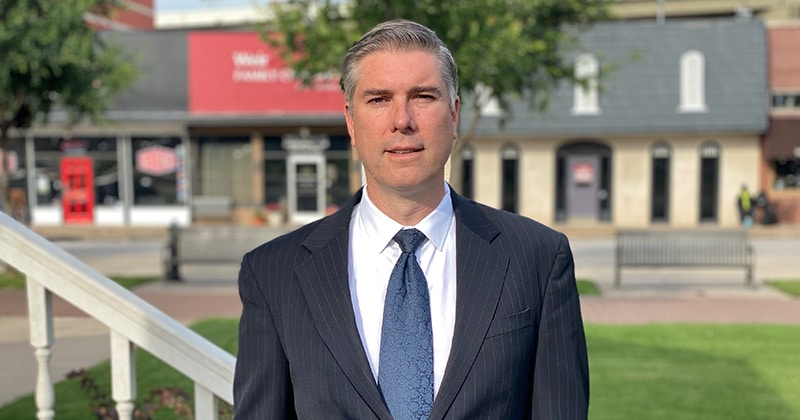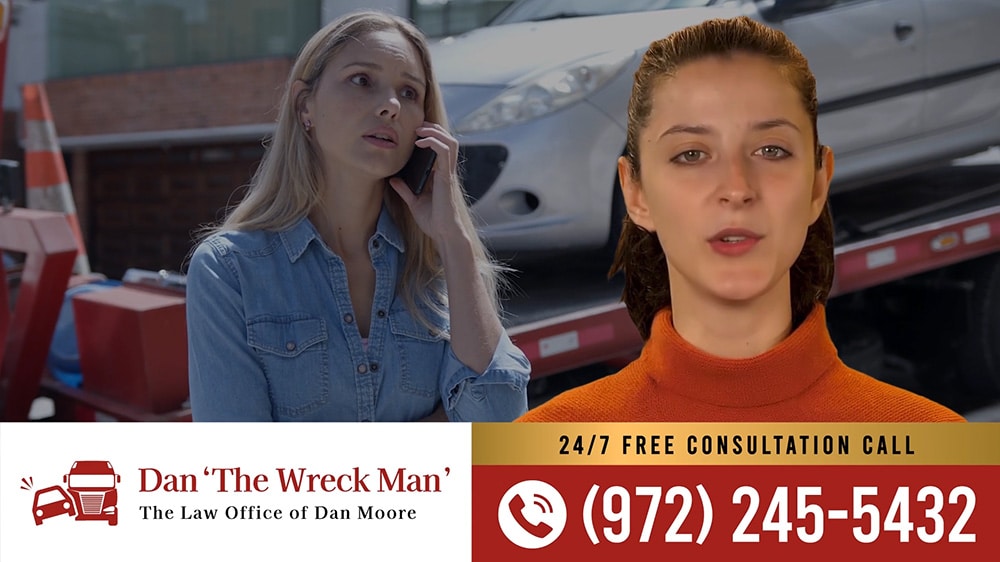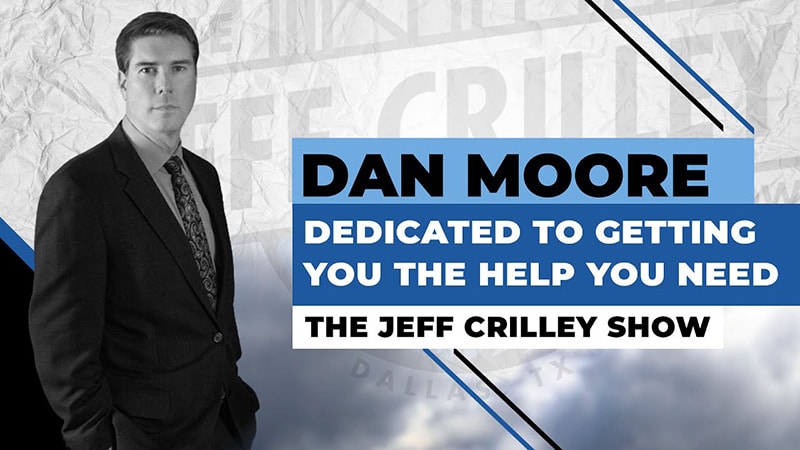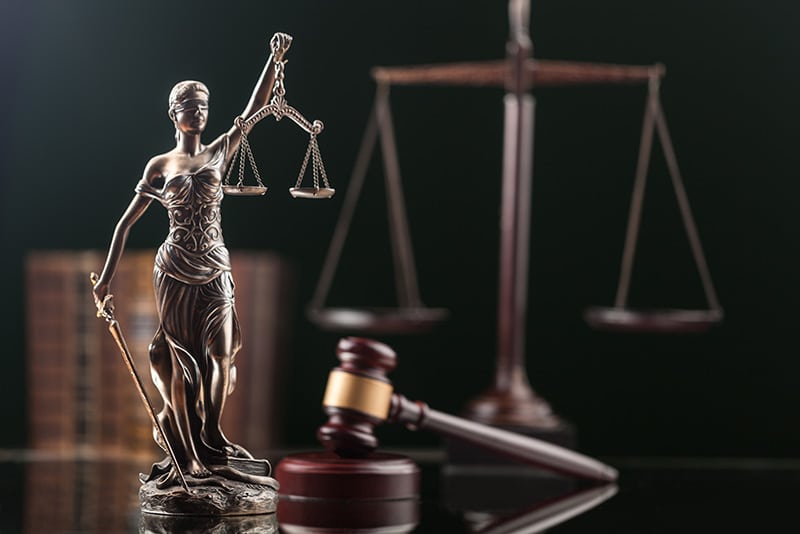If you were injured on someone else’s property and you think you may have a premises liability claim, contact The Law Office of Dan Moore at 888-2-WRECKMAN or submit your case online. You require a qualified premises liability lawyer to prepare your case and advocate on your behalf and investigate every tactic the defendant will employ to show that you are incorrect and deny the compensation you deserve.
Understanding Texas Premises Liability Law
If you are injured on another person’s property and that injury occurred due to unsafe conditions or negligence, the property owner can be held liable for damages under premises liability law. Our premises liability lawyers have provided a breakdown of Texas premises liability law, including what elements must be proven to make a successful case.
Premises liability cases are some of the hardest types of cases to pursue in Texas, as they are often complex and necessitate that the plaintiff prove many elements to make a successful case.
A knowledgeable Texas premises liability lawyer can help you better understand if you have a strong case for premises liability and help you determine how best to move forward.
Types of Premises Liability Cases in Texas
Premises liability cases encompass several different types of liabilities. It is important to identify what kind of case you’ll be making, as different elements must be proven for each.
Standard Premises Negligence Case
standard premises negligence case typically involves a claim that a dangerous condition or circumstance involving the property caused an injury to the plaintiff. For example, tripping over an unsecured extension cord strung across a room would be grounds for a standard premises negligence case.
In order to prove liability in this type of case, the plaintiff must establish that:
- A dangerous condition was present on the property
- The condition caused an injury
- The operator of the premises created, knew, or should have known about the condition
- The operator of the premises failed to correct the condition before the injury occurred
Negligent Activity
A negligent activity case involves a claim that one of the defendant’s employees injured the plaintiff while working on the premises. For example, an employee hitting someone with a forklift would be grounds for a negligent activity case.
In order to prove liability in a negligent activity case, the plaintiff must establish that:
- The employee did not act as a prudent person would have acted under the circumstances
- This behavior resulted in an injury to the plaintiff
Negligent Undertaking
A negligent undertaking case involves a claim in which the property owner assumes an obligation or duty where he or she would not otherwise have one. In premises liability law, this most often involves a landlord/tenant relationship.
For example, if a tenant complains of a maintenance concern that the landlord fails to fix, and the problem results in an injury, this could be grounds for a negligent undertaking case.
In order to prove liability in a negligent undertaking case, the plaintiff must establish that:
- The premise operator assumed a duty to the plaintiff
- The plaintiff relied on the premise operator to perform that duty
- The plaintiff was injured as a result of the premise operator’s failure to perform that duty
Premises Liability Versus Negligent Activity Cases
One of the most important distinctions to draw in Texas premises liability law is the difference between a standard premises liability case and a negligent activities case. This is important because there are more elements to be proven in a standard liability case than in a negligent activities case.
The most important distinction is that a negligent act occurs when there was an ongoing activity that caused injury to a plaintiff. If the act is not ongoing at the time of the injury, the case can be considered a standard premises liability case.
For example, if an employee spills something on the floor and fails to clean it up before walking away, resulting in the later slip and fall injury of a customer, this would be considered a standard liability case, as the negligent action was not ongoing at the time of injury.
If you or a loved one suffered an injury due to the negligence of another, consider seeking compensation for your injuries. Our Dallas premises liability lawyer can help you fight for justice while holding the responsible party accountable for their actions. Contact Dan Moore “The Wreck Man” – Dallas premises liability lawyer at 888-2-WRECKMAN for a free consultation today.

What Exactly Is a Texas Premises Liability Claim?
In contrast to a motor vehicle accident, which involves a moving vehicle, premises responsibility is a broad word that includes hazardous circumstances on many sorts of property. An unreasonable unsafe condition on the property of a business, a homeowner, or a public institution, like a school or a government building, is often the subject of a premises liability claim.
Unreasonably hazardous situations can range from something wet and slippery on the floor that could lead to a slip and fall—which, despite what people may joke about, can lead to extremely serious injuries—to other conditions. Some of the wounds are very serious, necessitating treatment up to and including life-threatening circumstances.
For instance, lets consider the story from this Texas premises liability lawyer: Six three-inch lag screws hold a precarious balcony to a structure. According to the architect, it turned out to be a railing even though it was intended to be a non-weight bearing construction. Nobody, not even the complex manager, was aware of this. Due to the fact that it was advertised as a balcony, he was not even aware that this rail did not support any weight. This so-called balcony, which was used by three young guys, was detached from the structure.
Over thirty feet below, on the concrete parking lot, they fell. Thankfully, they were all alive, although they were all seriously hurt. Due to the fact that there is a dangerous situation on the property, the owner or occupier is held liable when you use the term premises responsibility.
Our knowledgeable Dallas premises liability lawyers are skilled in handling these types of situations. For a free consultation, give us a call right away at 888-2-WRECKMAN.
What Are the Most Common Misconceptions About Cases Involving Premises Liability?
When defending these matters, you must demonstrate to the jury that just because something occurs somewhere, it does not automatically follow that the owner is to blame.
For instance, many people believe that if you are at home and someone gets hurt there, you are instantly liable for their injuries. This isn’t true. The house or company owner may or may not be held accountable and liable for those injuries. It depends on the specifics of each instance. It depends on whether there was a disproportionately risky condition and whether the owner knew about it or should have known about it under normal circumstances.
This means that in order to establish a premises liability claim, you must prove these components. Dallas premises liability lawyers that are competent and experienced know just how to handle these situations.
Do Premises Liability Cases Ever Consider Comparative Negligence?
To clarify Texas law, comparative negligence is essentially what happens when the jury is asked the question at the conclusion of the case. Comparative negligence is always a consideration. The jurors will be questioned in a manner similar to this: If any of the people listed below were negligent, did their negligence directly contribute to the event in question?
There will be at least two blanks for you. The defendant, the owner of the business, is the party you are suing. The plaintiff is the individual you say was harmed. The jury is then asked to compare the parties’ negligence in the ensuing question. In Texas, if the plaintiff is more than 50% to blame for the incident, he is not entitled to compensation and receives nothing.
Let’s just say that if he is 75% at fault, he does not get reimbursed for the other 25%. Due to tort reform, the defendants are now permitted to name additional persons they believe may have contributed to the causation even though they are not present in court. He receives no compensation; therefore, the comparative negligence is not simply between the parties.
The term “Responsible Third Parties” refers to these additional organizations or individuals. Although the jury may assign some of the blame to these other parties even though they are not formally parties to the litigation, doing so will lessen the potential damages that can be recovered.
Call Dallas Premises premises liability lawyers at our office if you have any questions about comparative negligence or how the laws governing premises liability in Dallas, Texas operate. Call (972) 245-5432888-2-WRECKMAN
What Kinds of Damages Can Be Recovered in a Premises Liability Case?
There are always exceptions to the rule in personal injury cases involving premise responsibility, which is why, should the worst happen, you are harmed, you need an experienced personal injury trial lawyer. There may be as many as ten blanks for the jury to fill in in any personal injury case. You have five locations with past, present, and future harm on each. The jury may take into account past and future medical care, discomfort physically or mentally, physical handicap, deformity, and loss of earning potential.
An experienced premises liability lawyer is what you need in this situation so they can thoroughly investigate each of those factors and ascertain whether the fall or accident caused any damage for you. We will ascertain the available evidence so that we can substantiate each of those components of damages in court. Additionally, as you might expect, there are many different types of lawsuits that discuss each of those components and what kinds of evidence are acceptable to prove those damages.
A free initial consultation with one of our Dallas, Texas premises liability claim attorneys is your best option if you’d like additional information about premises liability claims in Texas. Call right away to receive the details and legal responses you’re looking for.











